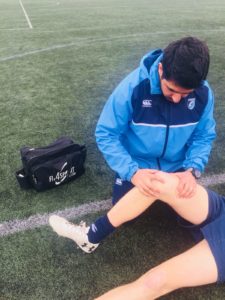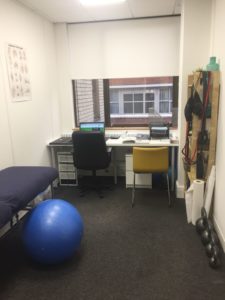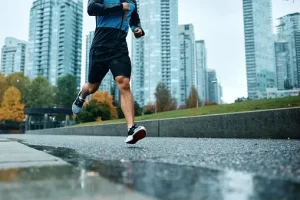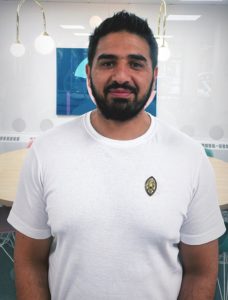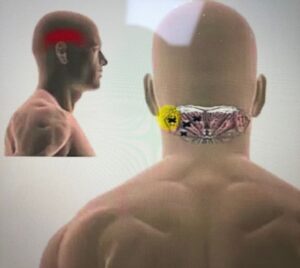Best of Both Worlds
The great thing about my profession is that we (physiotherapists) are skilled and versatile enough to work in different settings. Our foundations are pretty good I would say to make us take a leap into different directions of our profession. A sound knowledge of human anatomy and physiology and with a few years of clinical experience in a variety of settings is the making of a good clinician. To add to this, with a mindset of a constant need to learn and improve, keeping up to date with research, spending more time in your field with a really good mentor and really immerse yourself in that particular field can make you an excellent clinician and as the author Robert Greene described, we can achieve mastery. This requires patience and perseverance but our passion and love for what we do will take care of this. It is the passion and love for our work that will rub off onto our patients and will show in our work.
What I loved about when I was training to become a physiotherapist at Cardiff University was the different settings we had to rotate on our clinical placements. This gave me a flavour of what our role was and the work we did with patients in the wide spectrum of our profession. I have to admit, I did not enjoy every placement, some I enjoyed more than others because of various reasons but I did find out for sure what I wanted to do when I qualified. I wanted to be a musculoskeletal clinician treating patients with a variety of conditions from the general public to the elite athlete. My deep desire was always to become a clinical sports medicine clinician for elite athletes (not there yet but heading in the right direction). After working a year in the NHS I decided to embark on that journey.
In 2017, I began working for the Cardiff Blues rugby age-grade academy and Cardiff City football age-grade academy as a health care professional (physiotherapist) covering training sessions and match day cover. This was a new experience for me but I was really excited. The environment as you can imagine is so different from working in the hospitals and being outdoor most of the time which I loved. It did take me a little while to adapt to the demands of the sport and find my feet in the role. I had to learn new skills like for example, taping techniques for ankles, knees, wrists, shoulders , fingers etc and also I had to be advanced sports trauma management trained so I know how to deal with incidents that happen on and off the field. This I found a little scary to begin with especially in rugby where players are always colliding with one another during tackles, so being really vigilant and aware of how the player has reacted after a tackle or a head collision is so important because within a blink of an eye or a lapse of concentration, I can miss serious issues relating to the players health, with particular attention given to concussion in sports. When you work as a health professional in sports, you soon realise the responsibility on your shoulders of the welfare of the players. The level I work at, I am the only health professional covering the training sessions and on match days we do have the ambulance services who are advanced first aid trained work alongside us as a team in case of any emergencies where a player needs to be taken off the field or go hospital. Because we are first contact health professionals for these players, it is vital we get it right and that is where the pressure is to ensure that the players are managed well when they are injured or when concussed and the coaches rely on me heavily during these moments. Working in sports, everything is happening at a fast paced, we are always working to time which is often tight, so I also have to work fast and make sure players are ready for training and on match days. This requires all of my experience and skills to make sure my role is carried out as best as it can. Working in this pressure environment, I have often have to make quick decisions if a player is fit to train or fit to play a match and pass on that information to the coaching staff who most of the time listen to our advice depending on the injury and the importance of the match. On match days the pressure is triple because of the intensity and the chances of an injury are always more. Although I always want my team to win, it is a constant battle to curb those emotions and focus on player welfare and my job as a physiotherapist. So far the experience has been demanding, pressure-filled, joyous, satisfying, exciting, challenging, and rewarding all in one and that is why I love it.
Working in sports has been all the above I described in the last sentence but I also missed working with the general public as I did working in the NHS. This had made me open my own physiotherapy clinic and provide a service for everyone. I missed treating someone with chronic low back pain and who wants to return to work or chronic Achilles pain who wants to go out and run again or someone who has a shoulder pain and cannot reach out to the top cupboard or pick up their baby. Working with rugby players or footballers is different but I can draw parallels from both these populations. Both would like to be pain free again, both would like to return to normal function, and both would like to return to their work or activity. I did say earlier that there is probably more pressure in the sporting environment and what I meant by that was the acute trauma that I may and have had to manage working in sports where working in my clinic or when I worked at the NHS, I don’t have that pressure. Working in my clinic there is also a lot of pressure where a patient cannot afford to have too much time off work because of a mortgage or other bills pending and they require me to make a significant difference to their pain and function so they could return. This is also very satisfying and rewarding in a different context and comparable consequences of injury for the club or employers, players/employees, socially, mentally and financially (elite clubs/players)/employees. Having to work in sports, the NHS and now in my own physiotherapy clinic, the patients I see in my clinic are often more complicated and harder to treat. Working in both environments I think will help me become a better clinician.


